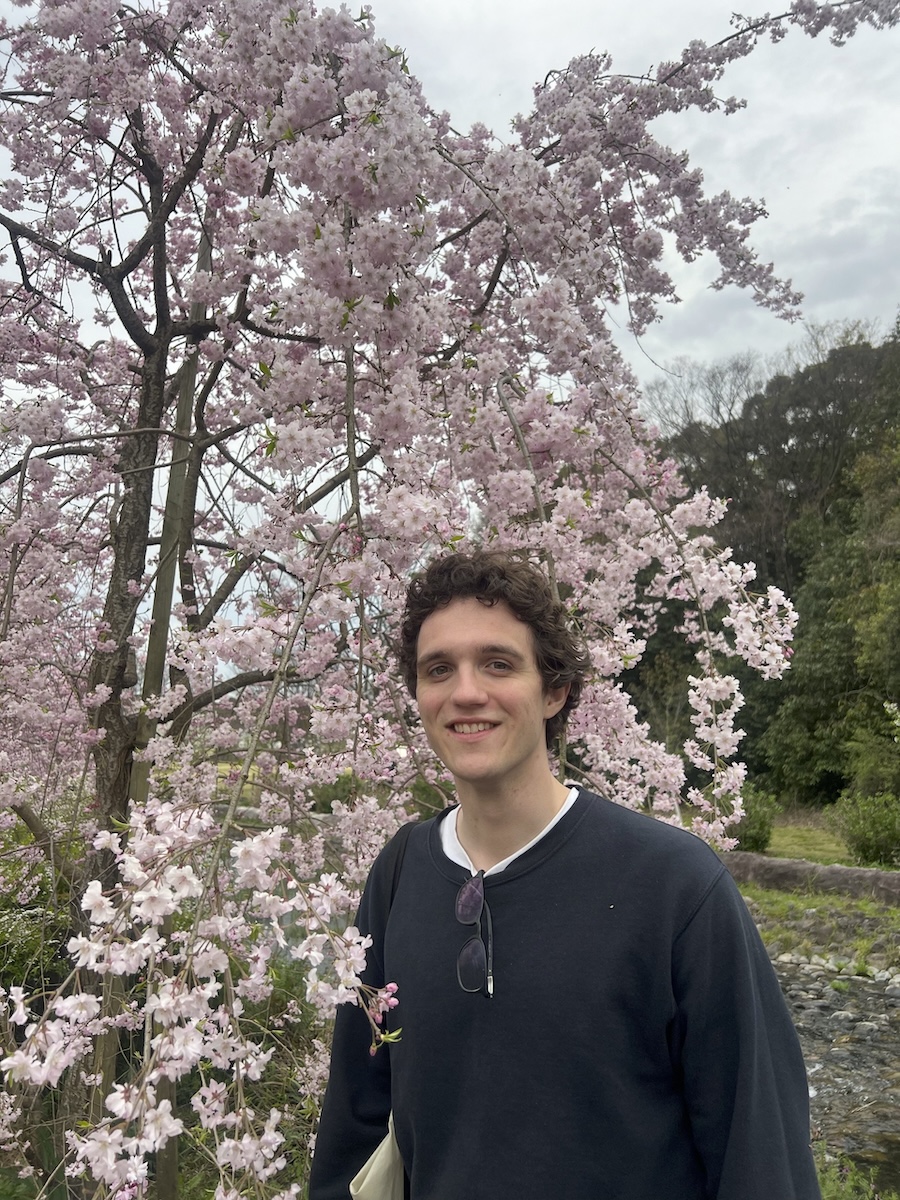What have you been up to since graduating from Bowdoin?
At Bowdoin, I majored in biology with a focus in ecology, evolution, and marine biology, and I completed the minor requirements for both history and Japanese. During my senior year, I specifically sought out post-graduation opportunities where I could combine my interests in language and science, using my Japanese as much as possible while gaining additional research experience. Since June, I have been working as a research intern studying the evolution of coral reef fish at the Okinawa Institute of Science and Technology (OIST) in Okinawa, Japan. As OIST is a very international university, I often act as a translator between American members of my lab, local Okinawan people, and other scientists, while also reviewing scientific literature in Japanese. I plan to continue my internship here through next summer before transitioning into a PhD program in coral biology and coral reef ecology.
Why Japanese studies?
I had a lot of exposure to Japanese language and culture during my childhood. My dad worked for All Nippon Airways for many years, so I was fortunate to have the opportunity to visit various places around Japan while growing up. Those experiences, combined with hosting a visiting student from Japan for two years, laid a strong foundation for my interest in studying the language. I began taking Japanese classes through a program offered at my high school in ninth grade, and by graduation, I was committed to continuing my studies in college. Although I had already planned to take Japanese courses at Bowdoin, I was further motivated by the encouragement of excellent professors and the incredible camaraderie of the Japanese Student Association.
I became close friends with classmates and locals alike while spending a semester abroad at Dōshisha University in Kyōto during the spring of my junior year. Additionally, being able to communicate in Japanese has given me a much deeper appreciation for the nation’s unique culture and history, which in turn has influenced the way I approach research, writing, and more.
Are there any classes, professors, or experiences that had a lasting impact on you?
Aridome Sensei and Morita Sensei were my two primary Japanese instructors at Bowdoin. I can’t thank them enough for their patience, kindness, and mentorship throughout my language studies. Their dedication to my success, as well as to that of their other students, made them incredible professors and friends, both inside and outside the classroom.
Spending a semester studying abroad in Kyōto was also extremely pivotal in my development as a Japanese language student. The classes and faculty of the Kyoto Consortium for Japanese Studies (KCJS) program at Dōshisha University improved my language skills dramatically in just a few months. Outside of class, I spent each day exploring the thousands of temples and shrines throughout the ancient capital, striking up conversations with locals in passing, at restaurants, and while riding public transit. From taking in a mountaintop view of Arashiyama’s bamboo forests with an elderly hiker to exploring Nara’s plum trees in full bloom with a Kyōto-based soba chef, I will never forget the adventures of that semester.
What advice would you give to current students or recent graduates interested in your field?
While at Bowdoin, involve yourself with the Japanese Student Association as much as possible by attending weekly language table dinners, social gatherings, and program events like karaoke nights, mochi-making, and tea ceremony club meetings (Sadō). Plan a semester abroad in Kyōto or elsewhere in Japan to expand your horizons, strengthen your language skills, and build friendships with new people.
The study of foreign languages, and Japanese specifically, has the potential to open many doors that may not be obvious before finishing undergrad. If you have strong interests in biology or other areas, seek out opportunities to pair language with those fields of study. Consult with your professors and peers. Those opportunities will present themselves, either in the States, in Japan, or elsewhere.


